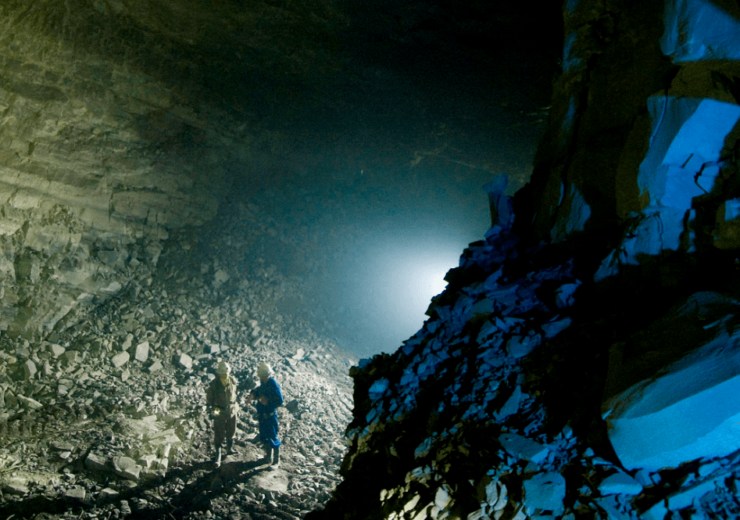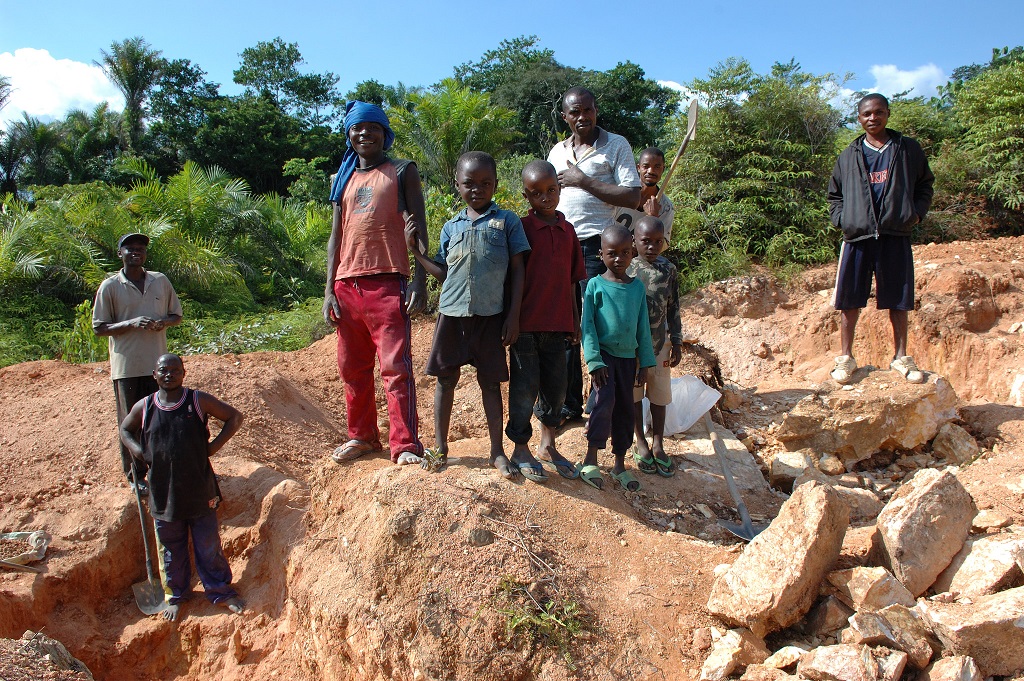Google and Apple are among the firms accused of overseeing human rights violations in the Congo, where cobalt mining operations have fuelled electronics manufacturing

Miners searching for cobalt in the Kamato Mine, located in the Democratic Republic of Congo (Credit: Katanga Mining)
The world’s biggest tech giants have been hit with a class action lawsuit in the US on behalf of children either killed or injured during cobalt mining operations in the Democratic Republic of Congo (DRC).
The legal complaint, brought by human rights group International Rights Advocates (IRA), calls out Google, Apple, Microsoft, Tesla and Dell for a failure to implement policies safeguarding against child labour abuses in their supply chains.
It is made on behalf of 14 Congolese families whose children have either died or suffered serious injury while working under “extremely dangerous stone age conditions” at cobalt mines in the region.
Cobalt is an essential mineral in the manufacture of the batteries used in consumer electronics sold by these technology companies – and the DRC is home to the vast majority of the world’s known supply of the resource, more than 60%.
IRA executive director and lead counsel in the case Terry Collingsworth said: “We will do everything possible to get justice quickly for the children we represent.
“In my 35 years as a human rights lawyer, I’ve never seen such extreme abuse of innocent children on a large scale. This astounding cruelty and greed needs to stop.”
Tech giants accused of ‘aiding and abetting’ child labour abuses in Congo cobalt mining operations
International Rights Advocates asserts the plaintiffs it represents have evidence that Google, Apple, Microsoft, Tesla and Dell “aided and abetted” the Congolese cobalt mines that “abused and profited from” forced child labour in dangerous conditions.
It added that other technology and automotive companies are being investigated and are likely to be added to the lawsuit.
Among those seeking damages are the families of children who died in tunnel or wall collapses in such mining operations, as well as children who survived the incidents with serious life-changing injuries.
The IRA said in a statement: “It is well documented that the young children mining the defendants’ cobalt are not merely being forced to work full-time, extremely dangerous mining jobs at the expense their educations and futures – they are being regularly maimed and killed.
“Rather than step up to help these children with a negligible portion of their vast wealth and power, these companies do nothing but continue to benefit from cheap cobalt mined by kids robbed of their childhoods, their health, and for far too many, their lives.”
Glencore denies ties to artisanal mining in the DRC
Responding to the lawsuit, both Apple and Dell said they were “committed to the responsible sourcing of minerals” and that if a mineral refiner in their supply chain was found guilty of misconduct, it would be removed.
Apple added that it has excluded six cobalt refiners from its network in 2019, while Dell said it was investigating the allegations and had reported them to the Responsible Minerals Initiative (RMI).
Google, meanwhile, said it was committed to “sourcing all materials ethically and eliminating child mining in global supply chains”, and would work with the RMI to “drive efforts in and beyond the DRC”.
Microsoft and Tesla did not respond to requests for comment.

Also named in the lawsuit is Swiss mining giant Glencore, which has a long history in the DRC and is accused of “widespread violations of human rights and environmental laws, as well as participation in rampant corruption all over the world” by the IRA.
The court filing alleges Glencore’s close involvement with the operations in which a number of the child plaintiffs worked, before the refined cobalt was sold to the named tech companies.
In a statement, the miner said: “Glencore supports and respects human rights in a manner consistent with the Universal Declaration of Human Rights.
“Our production of cobalt in the DRC is a by-product of our industrial copper production. Glencore does not purchase, process or trade any artisanally-mined ore, and does not tolerate any form of child, forced, or compulsory labour.”
Race for minerals used in electronics has been blighted by supply chain issues
Mining interests from around the world have converged upon the DRC due to growing demand for its abundant cobalt resources for use in the manufacture of lithium-ion batteries and popular consumer electronics.
But the country’s industry, in which China has established something of a production monopoly in recent years by taking over many of the mines, has been beset by a string of human rights abuses and difficult questions over its ethical conduct.
Earlier this year, analysis from the Business & Human Rights Resource Centre (BHRRC) identified numerous allegations of human right law breaches in the past decade that had been filed against companies involved in the extraction of minerals like cobalt and lithium – a mineral also used in the production of electronics.
Efforts have been made to address the situation that has created the conditions in which young children can be sent down a mine without safety equipment, potentially falling victim to unstable, and unsafe, conditions and infrastructure.
Programmes like the Responsible Minerals Initiative serve as watchdogs for the industry and enable the reporting of abuses, while technology such as blockchain has been trialled to create a more robust and transparent archive of mineral supply chains.
In October, the London Metal Exchange, where minerals sourced from the Congo and elsewhere around the world are often traded, announced it will continue to accept commodities from regions known to be affected by conflict and human rights abuses.
It said this would avoid “adversely impacting” their economic development – although the exchange confirmed it will tighten up its framework for accepting goods from artisanal miners in problem areas.
